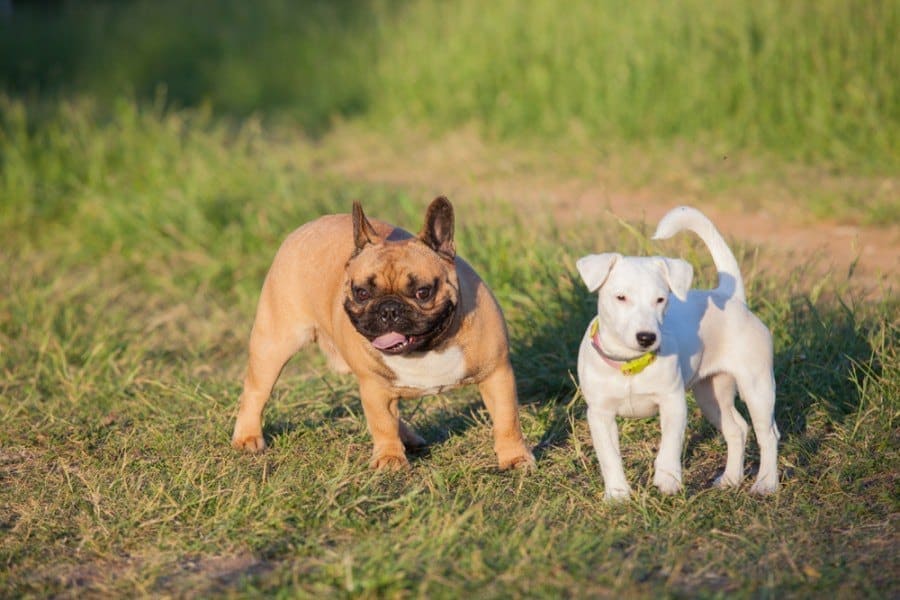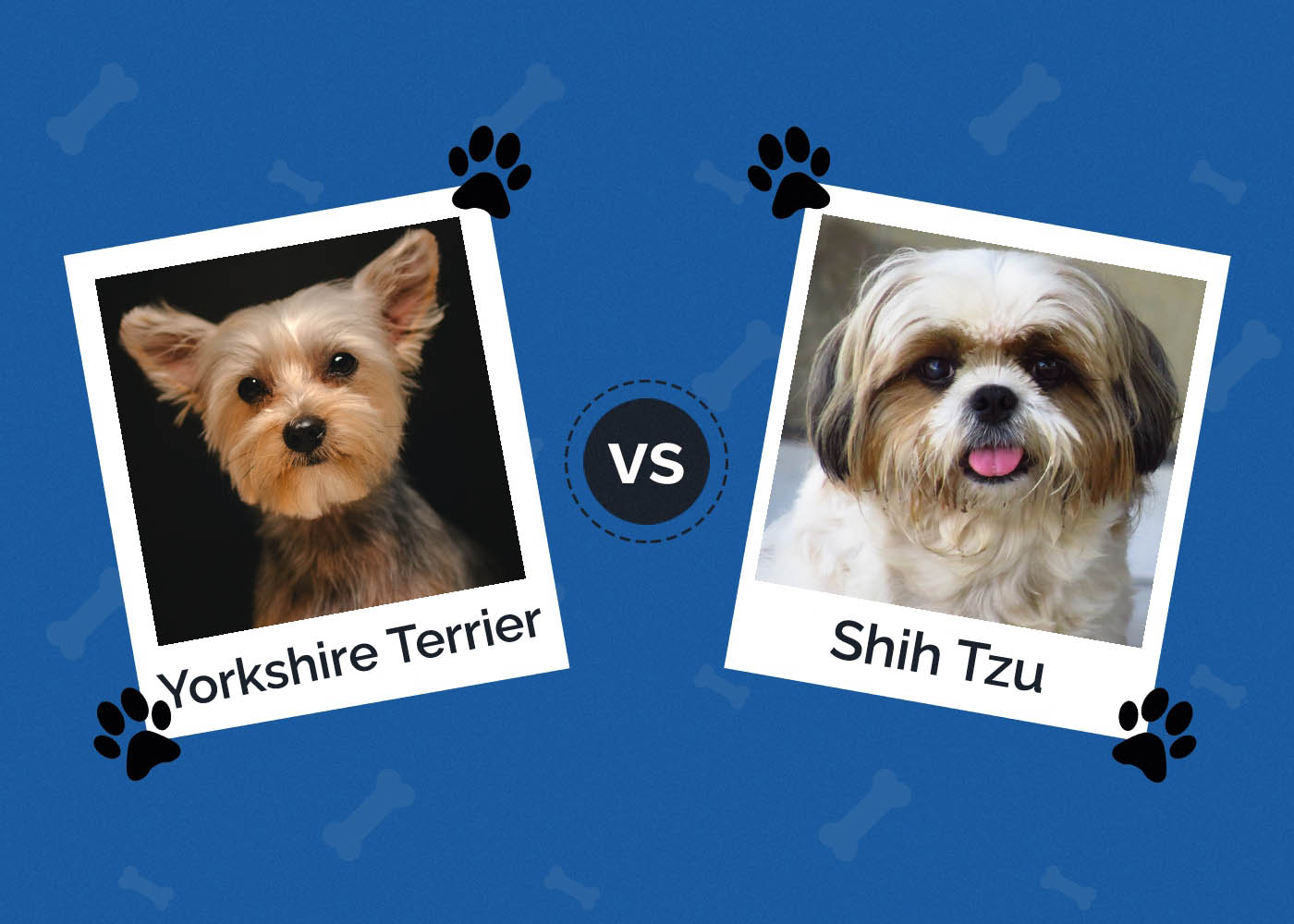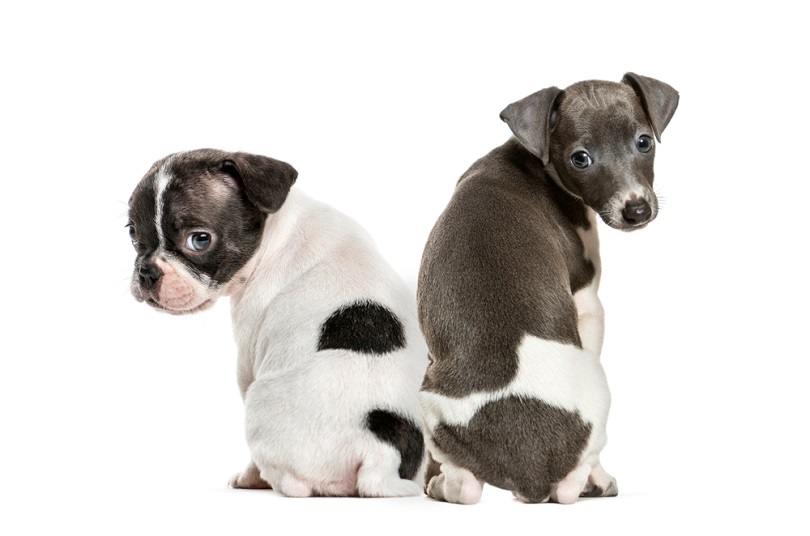Pakita (Akita Great Pyrenees Mix): Pictures, Care, Temperament & Traits

By Misty Layne
Updated on
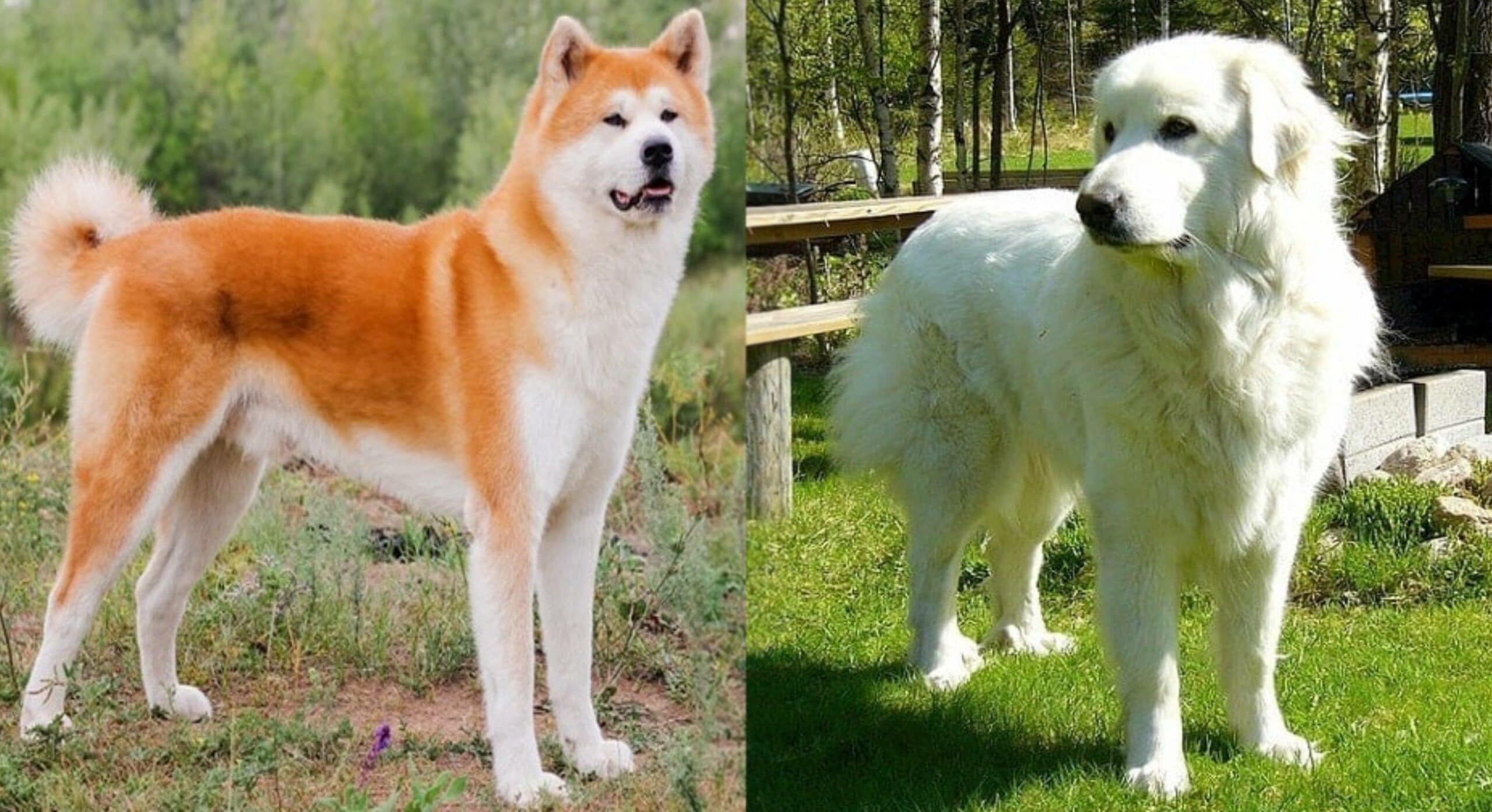
If you’re ready to add a new dog to your life, you’ve likely considered a variety of dog breeds. Perhaps the Pakita, a mix between the Akita and the Great Pyrenees, is one of those breeds. If so, you need to know precisely what you would be getting yourself into if you adopted one of these pups (a lot of fun and a bit of a stubborn attitude, mostly!). You also need to know how to properly care for a Pakita.
Luckily, we have the information you need below! You’ll learn more about the Pakita temperament, their diet and grooming needs, and more. So, keep reading so you can make an informed decision about whether to adopt one of these dogs!
| Height: | 24–32 inches |
| Weight: | 70–130 pounds |
| Lifespan: | 10–12 years |
| Colors: | White, red, gray, brindle, badger |
| Suitable for: | Seasoned dog owners, families, singles |
| Temperament: | Loyal, stubborn, protective |
The Pakita is a designer dog bred from the Akita and the Great Pyrenees, and they can be a bit challenging to find. They’re large canines that tend to be incredibly loyal and protective of their loved ones, making them excellent guard dogs. These pups are also intelligent, active, and fun to be around (though temperaments vary a bit depending upon which parent dog they take after). Because of their stubborn streak, though, they do better with seasoned dog owners rather than newbies.
Pakita Characteristics
Pakita Puppies
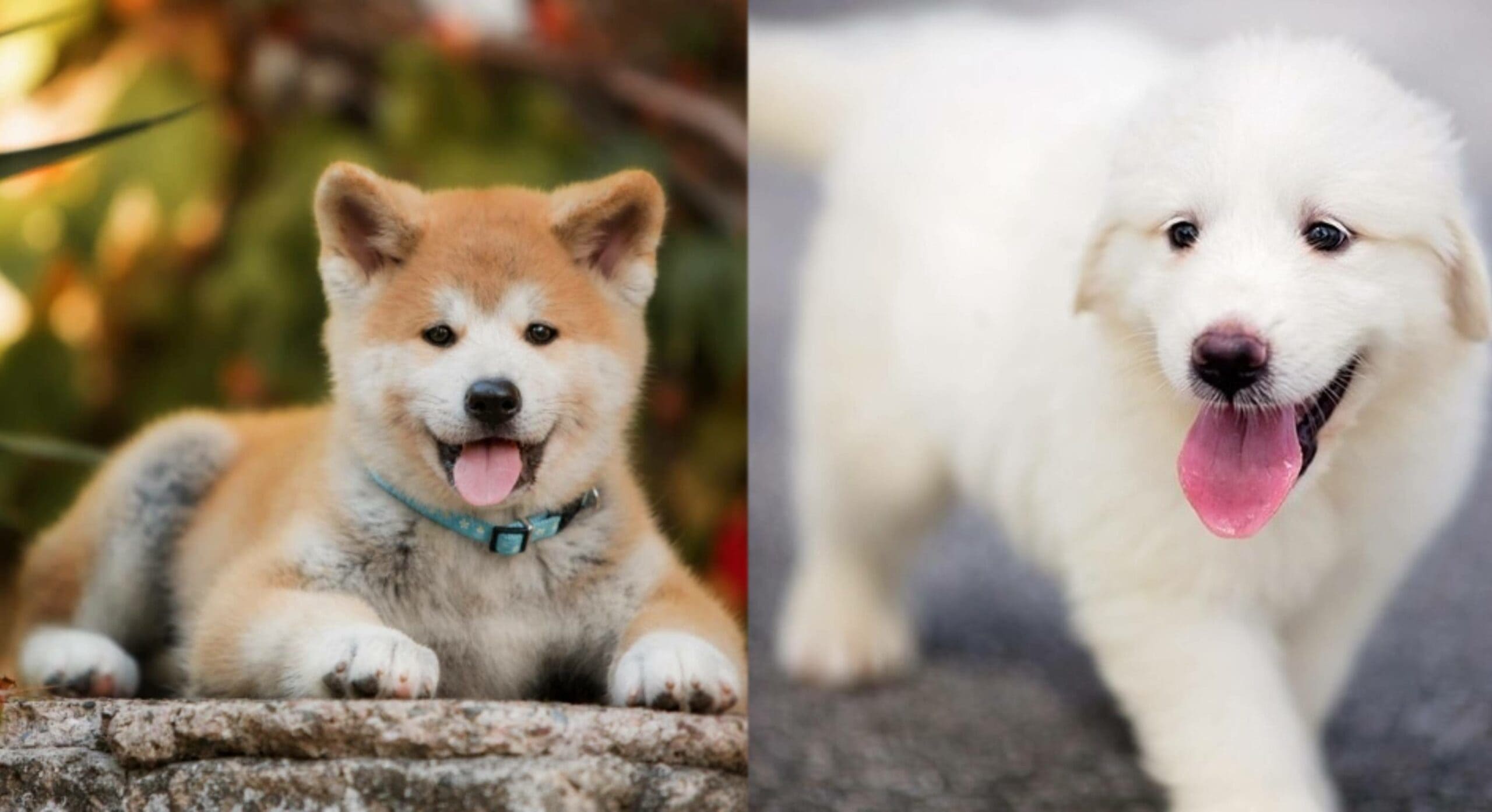
You might have a bit of difficulty finding this hybrid breed. Chances are good you’ll need to go through a breeder, but you should also check adoption sites, such as Petfinder, as you may locate one there. Also, take a look at rescue groups for Akita and Great Pyrenees dogs, as they sometimes have Pakita puppies.
As for the personality of the Pakita puppy, it really depends on which parent it takes after. Both the Akita and the Great Pyrenees can be a bit of a challenge to raise, but the Great Pyrenees tends to be more mellow than the Akita. And both breeds are active, so you can expect lots of time spent playing with your pet!
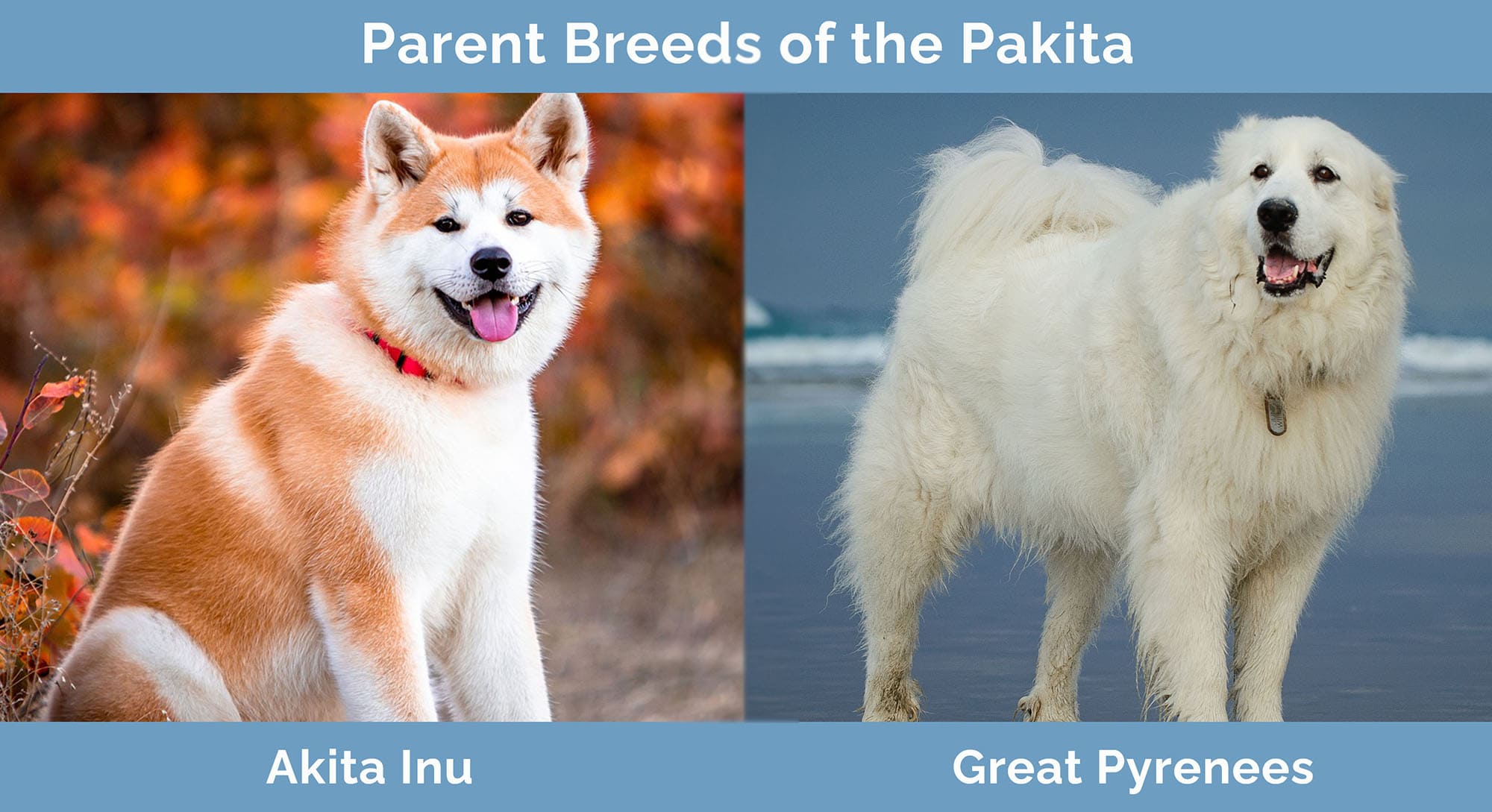
Temperament & Intelligence of the Pakita
The temperament of the Pakita will depend a lot on which parent it takes after more. But overall, these canines are loyal, protective, affectionate with their families, energetic, and stubborn.
If the Pakita takes more after the Akita, it will be a bit more of a challenge because it will be a more opinionated animal. However, Akitas tend to have strong bonds with their favorite people, so you’ll find yourself exceptionally close to your pup. Akitas also have tons of energy and enjoy burning off that energy outdoors.
If the Pakita takes after the Great Pyrenees, it should be more mellow than one that takes after the Akita. However, Great Pyrenees dogs also have stubborn streaks, which can affect training. They can be highly independent, which tends to make them very reserved around those not a part of their families.
Are These Dogs Good for Families? 👪
The Pakita can make an excellent addition to a family home; however, you have to socialize these dogs from a young age. Without proper socialization, you could have issues with the Pakita. But a properly socialized canine will get along well with children. However, you might not want to adopt a Pakita if you have small children in the home. Due to the dog’s size and active nature, small children could be accidentally knocked over during play.
Does This Breed Get Along With Other Pets?
Again, a Pakita can get along with most pets with proper socialization. But one thing to know is that the Akita has a higher prey drive and will go after smaller animals, so if the Pakita takes after the Akita more, this could be an issue. Great Pyrenees have a lesser prey drive but a reasonably strong instinct to hunt. So, your Pakita should be introduced to other animals early to get used to them.
Things to Know When Owning a Pakita
So, what else should you know about owning a Pakita? Well, you should know what your new pup needs to eat, how much exercise it requires a day, its grooming needs, and more. Here’s a quick look at all these things!
Food & Diet Requirements 🦴
When it comes to feeding your Pakita, you’ll want to be sure you’re giving your dog a large breed-specific, high-quality dog food with a good amount of protein to help it keep up with its energy. Because this is a larger breed, you might also want to look into a food supplemented with chondroitin and glucosamine to help reduce the risk of joint issues.
As for how much to feed your Pakita, it’s advisable to have a chat with your vet about feeding guidelines. Every dog is different, so one Pakita may require more food than another. Just be careful not to overfeed your Pakita, as obesity in canines is all too common.
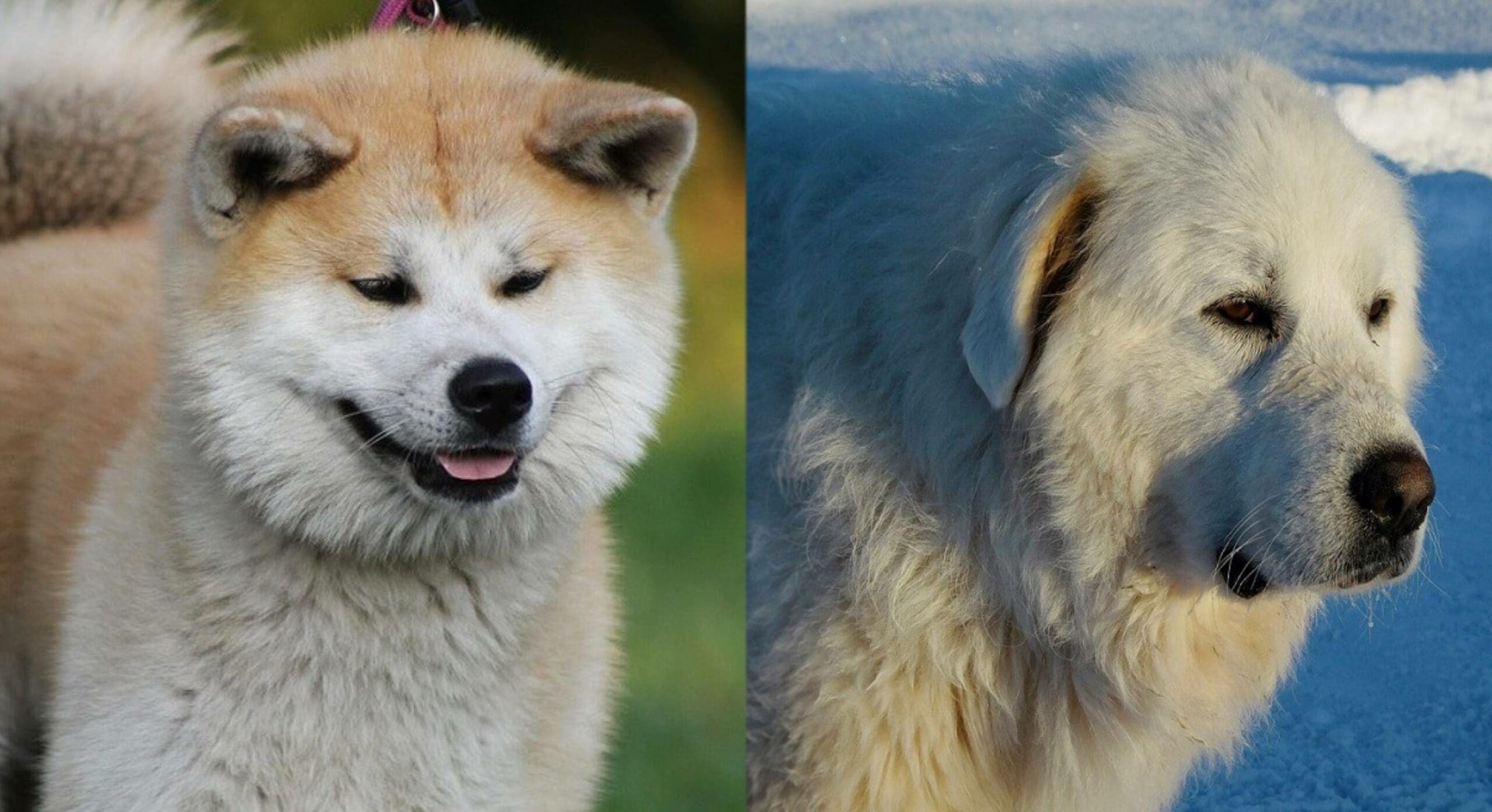
Exercise 🐕
Since both the Akita and Great Pyrenees are fairly active breeds, you can expect the Pakita to be similar. While not as active as some other large breeds, they will likely need between 30 minutes and one hour of exercise a day (think long walks, hikes on the weekend, and tons of fun in the backyard). You don’t want to overdo the exercise as it could harm joints, but you want to ensure the dog gets enough to keep it from becoming bored. Remember, a bored pup is a destructive one!
Training 🎾
The Pakita inherits intelligence from both its parents, which can help when training. However, it also inherits stubbornness and independent thinking from each, which can often be a hindrance. The Pakita isn’t impossible to train, but it can be challenging at times.
These pups will want to assume the role of the alpha, so they will need someone firm and confident to train them. When training, keep in mind that positive reinforcement is always best, as are shorter training sessions. And the Pakita enjoys physical challenges, so work that in if you can. Plus, don’t forget to begin socialization early, so your pup can get used to people and other animals!
If you’re having issues with training your Pakita, contact a professional trainer for aid.
Grooming ✂️
Though both parents of the Pakita have longer hair, the Pakita itself doesn’t require a ton of grooming. You’ll be doing plenty of brushing—once or twice a week—to remove dead hair, but that’s about it. (Of course, bathe your dog when it’s smelly or dirty and keep nails trimmed, as well.) And you probably want to invest in a good vacuum or broom; these canines are only moderate shedders, but that long hair can get everywhere!
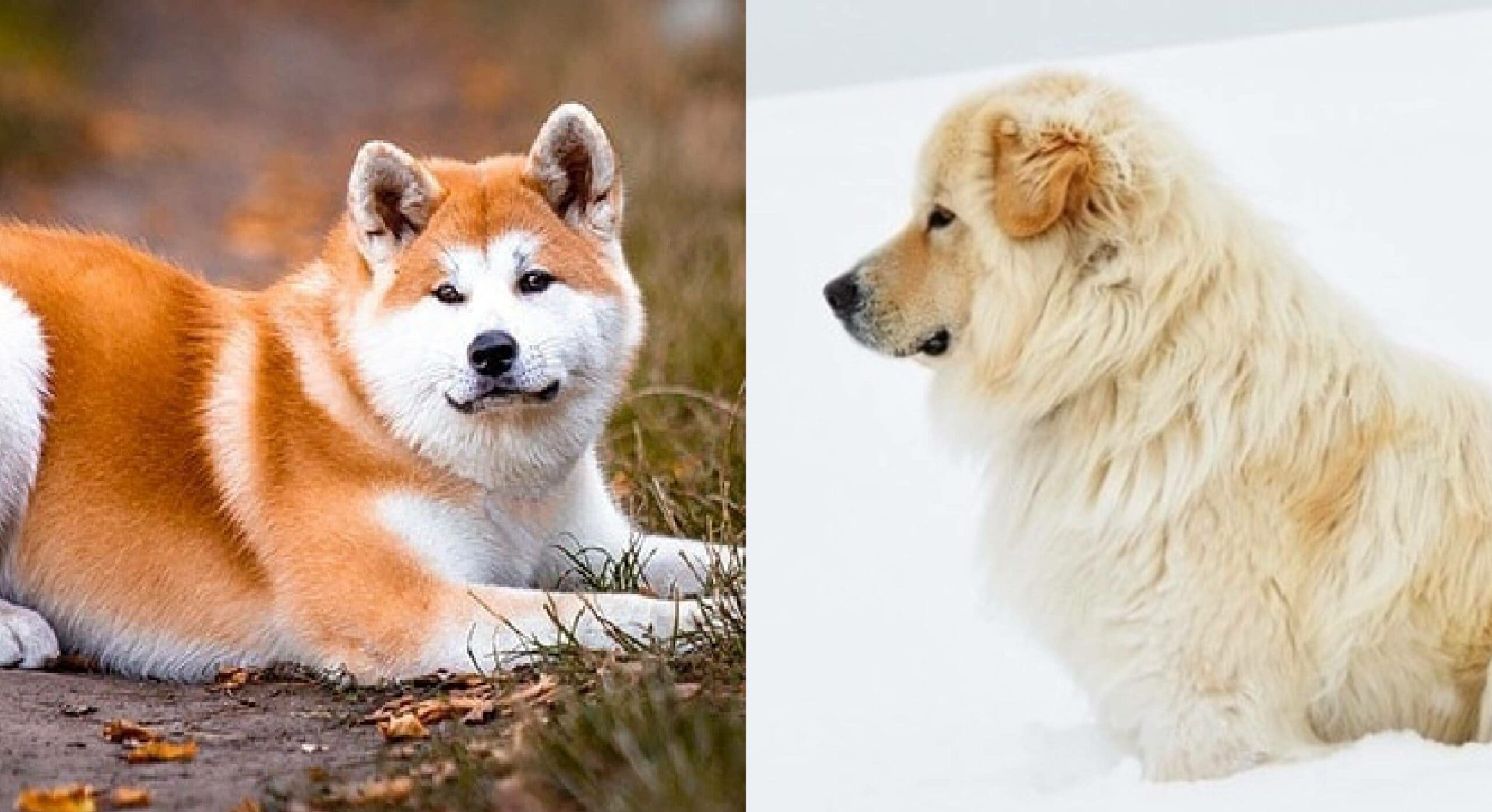
Health and Conditions
The Pakita is a reasonably healthy breed, but it could inherit a few health conditions from the Akita and Great Pyrenees.
- InsertMinorConditionsHere
Male vs Female
The size will be the most significant difference between a male and female Pakita. Males will be a few inches larger and a few pounds heavier than females. Other than that, they should be similar personality-wise. If your Pakita takes more after the Akita side, males might be just a bit more territorial and aggressive than females.
3 Little-Known Facts About the Pakita
Now it’s time to learn three little-known facts about this dog breed!
1. The Great Pyrenees’ coat is resistant to dirt and tangles.
If your Pakita’s coat resembles the Great Pyrenees more than the Akita! Because the Great Pyrenees coat is resistant to dirt and tangles, you’ll have a simpler time dealing with it.
2. The Akita breed is at least 1,000 years old.
This breed came to us via Japan, where it was initially bred for hunting and dates back at least 1,000 years.
3. The Great Pyrenees tends to be night owls.
Something to consider if you live in a smaller space is that the Great Pyrenees tends to be nocturnal, which means your Pakita might be as well. And that could result in lots of roaming around in the night and keeping you awake!
Final Thoughts
Though it’s more difficult to locate than other dog breeds, the Pakita can make a wonderful pet for families and seasoned dog owners. The breed makes fantastic guard dogs due to their protectiveness and loyalty, but they are also loving with their families and generally lots of fun. You might have difficulty training the breed, though, as both parent breeds are a bit stubborn. However, adopting a Pakita means creating a strong bond with your canine companion for life!
See also:
- Akita Collie Mix: Pictures, Care, Temperament & Traits
- Akita Rottweiler Mix: Pictures, Care, Temperament & Traits
Featured Image Credit: Left – FunFamilyRu, Shutterstock | Right – skeeze, Pixabay




